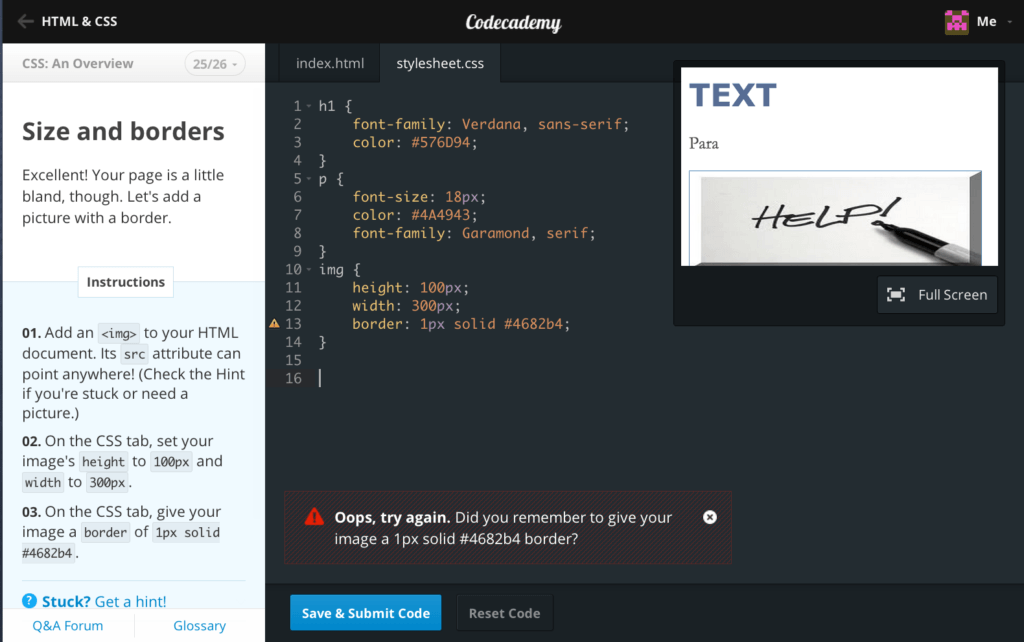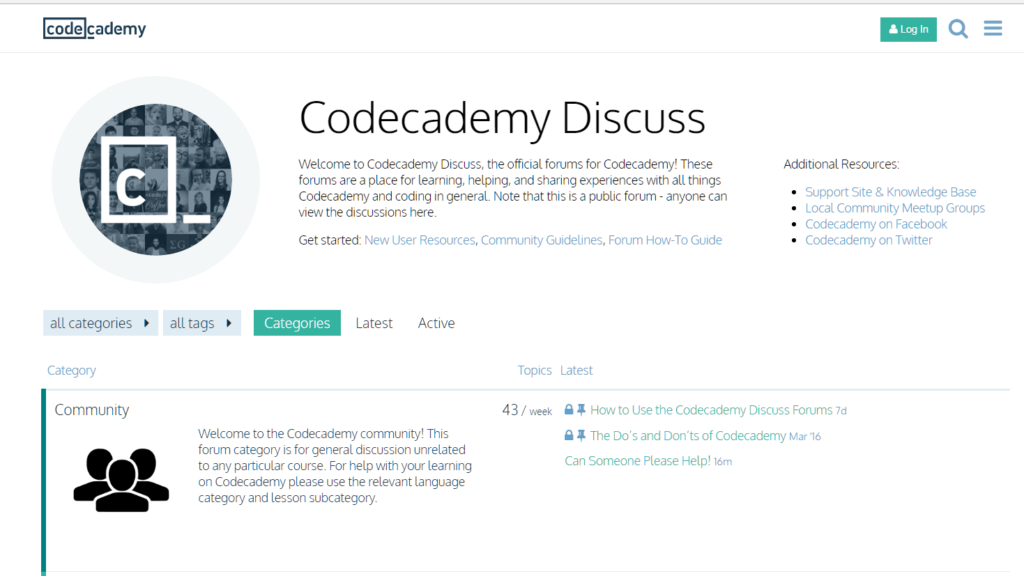Codeacademy: Crowdsourcing Code Tutorials

Codeacademy: An online platform that provides free coding tutorials, a third of which are created by the people for the people.
Codeacademy is an online platform on which users can get free coding lessons in 12 different languages such as Java, Python and PHP, among others. The company was founded in 2011 with a mission to make code tutorials accessible to everyone in the world in a bid to truly democratize programming. Ever since its founding, Codeacademy has raised $42.5 M and acquired 25 M users that are not only learning to code themselves but are also creating content on the site to help others do the same. Though it seems that the depth of information on the site is not sufficient for mid to high level coders, the platform is great to get early adopters to start coding given the easy to use interface and interactive community.
Value creation
Codeacademy has taken several steps to create value for its customers considering the platform has been free since inception. Lessons are taught not by video but via guided exercises that users need to complete via the in – browser terminal after which they accumulate points and badges that can be shared on social media. This not only creates a sense of achievement but also encourages users to continue. There is an online forum as well where users can discuss lessons and coordinate in – person meetups in their respective cities. To keep up with demand for more lessons, the company now allows its users to create and teach their own content which may be shared on the website depending up on its relevance.
Value capture
All features on Codeacademy have been free since inception however in 2016 the company started offering the Codeacademy Pro version for $19.99/month or $199.99/year to offer a more personalized and guided method to learn code. The company has talked about other ways to potentially monetize in the future but it remains to be seen how they will proceed with those business models.
Incentivizing participation and managing crowd
Codeacademy recognized early that it did not have enough lessons available to satisfy its growing user base and created the Course Creator to allow third parties to create their own content – the company provides documentation on how to use the site tools to write these interactive lessons. Codeacademy incentivizes participation by having no approval process to publish a lesson, however the company does screen them so that only valuable and relevant lessons are put up on the site. This makes it attractive for authors to create high quality courses since the exposure can build their online reputation on the platform. Codeacademy also encourages participation by inviting users who have had over 500 Q & A on the forums to become “moderators” (who get a virtual badge) on the platform to ensure user questions are answered appropriately and in a timely manner. Fortunately, for Codeacademy, it seems that the true intent of course creators and moderators is aligned with companys’ mission to contribute and share knowledge on coding which makes it easier to manage the crowd.
Challenges and growth
There are several challenges that Codeacademy faces given the competitive landscape and its existing approach to teaching code. The company has a much higher user base of 25 M compared to some of its competitors such as Coursera 7.5M and Udacity 1.8M, however, a high percentage of these users do not finish their lessons and drop out prior to learning tangible transferable skills. Even if the users stay on the platform, the general perception is that the content is not thorough enough to teach someone how to become a coder worthy of being hired. Some of its competitors have costly ($15,000 / year) boot camps, however, they offer guaranteed placements post course completion which can be a better overall proposition. The challenge for the Codeacademy will also be to further incentivize its crowd to create better content that is bug free and relevant to the discussion topics and finally to make its community more inclusive.
Sources
https://www.codecademy.com/blog/65
https://www.codecademy.com/blog/exciting-news-to-share
https://skillcrush.com/2017/01/16/codecademy-learn-to-code/






Great post on Codecademy, Rahul. One question that came to mind: How do their crowdsourced lessons perform relative to the content they create? My gut tells me their own content is considered best-in-class and since there are so many people who fall out of the funnel (per your dropout rate stats), I wonder if it strategically actually makes more sense for the Codeacdemy team to focus on providing and monetizing off their own quality content.
Thanks for your comment Alice. It’s difficult to say if their content is always better than the crowdsourced lessons but I would also think its better in most cases. Having said that though I don’t think they will monetize off their own content with the mainstream users since the site was founded with the intent of democratizing code and will continue to be free. They recently launched Codeacademy Pro ($20 / month) that has better more structured content and that seems to be doing great for now
Rahul – I really enjoyed reading your post and learning about the genesis of the platform. To echo Alice’s sentiments, my worry about crowdsourcing content is always quality. Alice makes a good point that they have created best-in-class content, and I fear that if the quality of that content gets diluted based on crowdsourced inputs, it brings down the entire average, and diminishes all of the effort they’ve put into their own content. I see your point about how they screen for quality, but this obviously becomes time consuming and enables more mistakes to slip through the cracks. Do you think this ultimately causes brand damage, or can they maneuver this problem successfully?
Thanks for the post Ellen – I agree it can be difficult to screen a lot of the content but there are also incentives put in to develop great content (you get exposure on the website) and the genuine intent of third party authors is to provide valuable lessons for the users. In general it seems that usage for third party content is lower than that for Codeacademys content but its also difficult for Codeacademy to create all the content itself. Another challenge is that since a lot of the users of the platform are absolute beginners, many times Codeacademy doesn’t know what the learner should learn and the learner doesn’t know either. I think they may need to provide stronger incentives over time for to ensure better outside content
Awesome post! Similar to comments above, my attention is drawn to the crowd-sourced content. I wonder how does Codeacademy create value and capture value for folks who create lessons for Codeacademy subscribers? Do they get to charge a price for their class? Or receive a cut of the subscription revenue? I also wonder if people post lessons on Codeacademy to hook them to come to their own teaching platforms potentially.
Thanks for your comment Brandon – Codeacademy creates value for the third party content creators by providing them with exposure on its platform and giving them recognition. Though the genuine intent of these authors is to provide valuable lessons for the users your point regarding poaching users to their own platforms is well taken and is a possibility. I do think though given the 25 m user base there are strong network effects in that there is a strong community that is engaged and even organizes face to face meet ups.
Regarding the price for a class – The only way to monetize for now is Codeacademy Pro ($20 / month) that has better more structured content and advisors to help you along the way but they will likely come up with additional ways to further monetize in the future